december-top.html
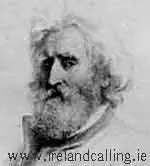 1785 Sir William Francis Patrick Napier was born in County Kildare on this day in 1785. He was a member of the British Army and fought in the Napoleonic Wars. He was injured in battle and forced to retire in 1819. He wrote about his experiences in History of the War in the Peninsular.
1785 Sir William Francis Patrick Napier was born in County Kildare on this day in 1785. He was a member of the British Army and fought in the Napoleonic Wars. He was injured in battle and forced to retire in 1819. He wrote about his experiences in History of the War in the Peninsular.
The book was praised for the graphic descriptions of the battles, and the engaging style in which it was written. It did also receive some criticism, with some accusing Napier of letting his own personal bias distort the facts of the conflicts. However, it remained one of the key historical records of the era, and was a point of reference for future historians for centuries.
Click here to read about more Irish writers
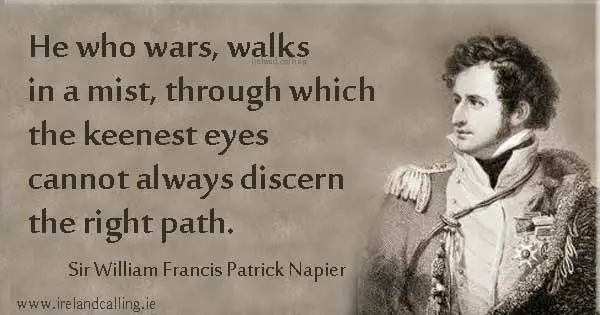
* * *
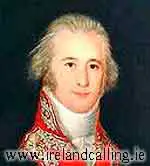 1823 Oliver Pollock died in Mississippi on this day in 1823. He was an Irish immigrant who had helped finance operations out West in the American War for Independence, (The American Revolution).
1823 Oliver Pollock died in Mississippi on this day in 1823. He was an Irish immigrant who had helped finance operations out West in the American War for Independence, (The American Revolution).
He is also credited as the man who created the $ sign.
Pollock was born in Northern Ireland but left for America as a young man. He settled in Pennsylvania and ran a successful business trading goods with the Spaniards of the West Indies. He built a strong relationship with Irish-born Spanish General Alejandro O’Reilly.
When O’Reilly was made governor of the Spanish territory Louisiana, Pollock thrived as a trader in basic foodstuffs. He sold flour to the new settlers at half the going rate to help them build the city.
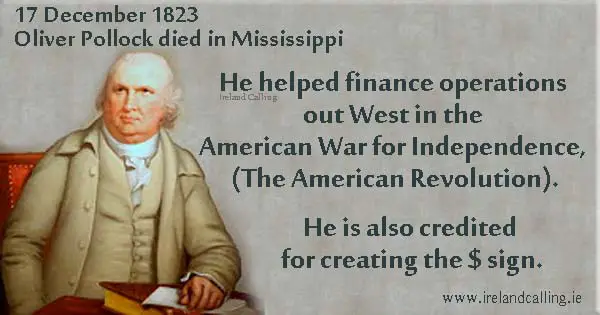
Pollock funded the American military operations in the west during the American Revolution. Despite his vast fortune, he ended up in debt of about $150,000 and was imprisoned. He was assisted by a fellow American military financer who had run into similar problems. Pollock was released from prison but lived out the remainder of his life in relative poverty.
* * *
1834 The Dublin and Kingstown Railway (D&KR), opened in 1834. It was Ireland’s first railway. It linked Westland Row in Dublin with Kingstown Harbour in County Dublin. In 1971 the station building was converted to a restaurant.
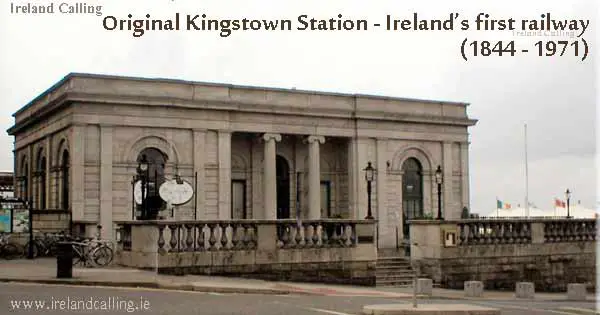
* * *
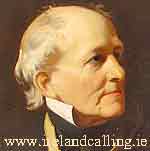
1857 Francis Beaufort died. He was an Irish scientist who revolutionised sailing with practices that are still used today. The Beaufort Wind Force Scale, used by sailors around the world, was created by Irish Admiral Sir Francis Beaufort nearly 200 years ago.
He left school at 13 to become a cabin boy for the British navy and later rose to the rank of Captain.
Read about his achievements here.
* * *
1867 Henry Harrison was born in County Down on this day in 1867. He was a politician and writer, and a friend and supporter of Charles Parnell. Harrison stood by Parnell after he was disgraced when his affair with the wife of one of his colleagues was made public.
After Parnell’s death, Harrison continued to work in politics trying to secure Irish Home Rule. He also supported Parnell’s widow, Kitty, and wrote a book revealing her side of the affair, which was a different version of events that had been reported in the newspapers.
Click here to read about the love story of Charles Parnell and Kitty O’Shea
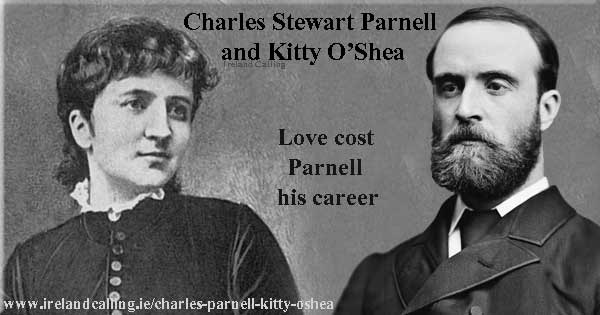
* * *
1922 British Troops leave Dublin after Ireland was declared a free state following the Irish War of Independence
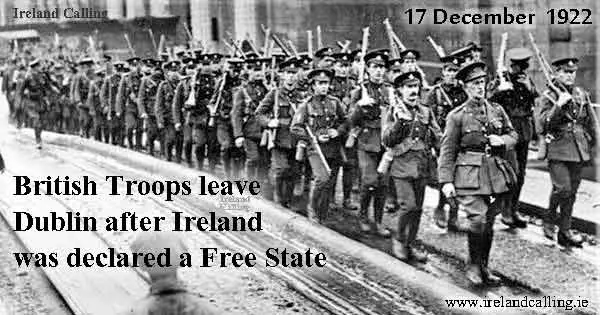
Here’s a Pathé News reel showing the British Troops Leaving Ireland (aka Erin’s Farewell). There were huge crowds cheering the departing British troops who left Dublin with bands playing and Colours flying.
* * *
1977 Happy birthday to Ruairí McKiernan, born in County Cavan on this day in 1977. He is a social entrepreneur and was the founder of spunout.ie, an organisation committed to empowering young people in Ireland.
McKiernan is a leading figure in campaigns for positive social change in Ireland. He has received numerous awards and set up several worthwhile projects to improve the lives and opportunities of young people both in Ireland and abroad. He is a regular contributor to several media outlets including the Irish Times, RTÉ and the BBC.
Here is a YouTube video of McKiernan speaking about his Hitching for Hope campaign.
Click here for inspirational quotes from great Irish figures
* * *
1985 Leo Maguire died on this day in 1985. He was a musician, songwriter and radio broadcaster. He presented a weekly show on Radio Éireann called Walton’s Programme in which he played popular Irish folk ballads.
Maguire was a veteran broadcaster but his real mark on Irish music came from his songwriting. He penned more than 100 tunes, many of which have been performed by major Irish acts. The Whistlin’ Gypsy Rover is probably his most famous song.
Clcik here to watch the Clancy Brothers perform Whistlin’ Gypsy Rover
Click here for the lyrics and chords to Whistlin’ Gypsy Rover
Click here to read about more Irish songs
* * *
1998 Danny McNamee was released from prison on this day in 1998, after his conviction was overturned by the Court of Appeal, twelve years after the original court case. McNamee had been found guilty of conspiracy to cause explosions, after he was linked to the IRA bombing of Hyde Park.
The case was centred on a fingerprint of McNamee on electrical circuits at a suspected IRA arms unit. He claimed that it must have been from work he did for a former employer; McNamee worked as an electrical engineer. He denied even having any sympathy with the IRA cause, and they also denied he was a member.
Despite these claims, McNamee was found guilty by the jury and sentenced to 25 years in prison. This case was referred to the Court of Appeal by the Criminal Cases Review Commission in 1998.
McNamee’s conviction was overturned when it was discovered that there were more prominent fingerprints on the electrical circuits in question, and this fact had not been revealed to the court. Those fingerprints belonged to Dessie Ellis, a known IRA bomb maker and already in prison.
Despite releasing McNamee from prison, the Court of Appeal judges said: “The Crown makes a strong case that the appellant [McNamee] was guilty of a conspiracy to cause explosions.”
He has since been sighted at various IRA ceremonies.
december-bottom.html